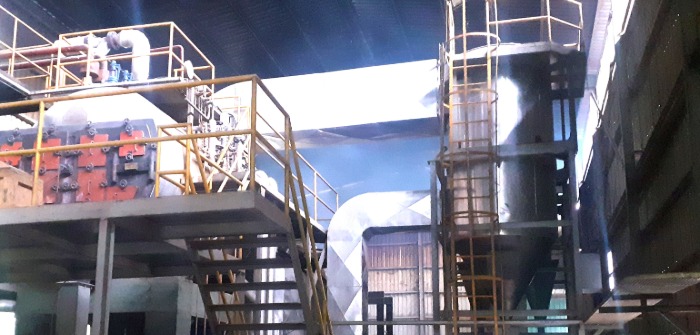Sri Lanka-based tire manufacturer GRI has detailed some of the initiatives undertaken by the company to ensure its tire production processes are environmentally friendly and make best use of waste materials in terms of reusing and recycling.
“The tire industry is one of the highest energy-consuming industries as we use both electrical and thermal energy in reproduction processes,” commented Ananda Caldera, executive director, GRI. “For many years GRI has used biomass boilers to generate thermal energy and the steam we need to cure tires. For these biomass boilers, we use environmentally friendly alternatives such as the waste material generated by the sawmilling industry called outer planks.”
“More recently, GRI started to use oat husks, which is a waste material from a neighboring and newly opened oats manufacturing plant, as biomass to generate thermal energy. The caloric value of the waste husk is almost the same as the wood waste. For thermal energy fuel we always use waste biproducts such as scrap wood and waste husk, thereby minimizing environmental impact,” explained Caldera.
GRI’s tire production facilities utilize solar power for electrical energy, thanks to PV arrays installed on the factory roofs. At present, solar panels across the factories generate a combined 1.2MW, but GRI has announced plans to increase this to 2.5MW through the expansion of a new factory.
In addition to harnessing the power of the sun, the tire manufacturer recycles the water used for its tire manufacturing processes. “Water is recycled in our facilities, where water used for washing purposes is treated and reused for maintenance of the landscape around the factory,” said Caldera. “We have a 24-hour water treatment plant that recycles the water.” This treated water is then utilized for cooling machines and several other things. GRI uses a dry tire production process to ensure that pollutants do not enter the outside environment.
Furthermore, any rubber waste generated by the production line is given to the local reclaimed rubber industry. This is then processed, before GRI buys it back for use in new tires, completing the circular process.
GRI received ISO 50001 certification for its energy management system and ISO 14001 for its environmental management system. The manufacturer also uses energy-efficient motors to ensure no electrical energy is wasted during production.
“GRI focuses on energy efficiency from the time of selecting machinery, where priority is always given to machines with variable speed energy motors and low energy consumption,” explained Caldera.
“GRI is in constant pursuit of seeking sustainable alternatives to be used in our products and manufacturing processes. We invest in R&D and are continuously looking at ways to reduce our impact on the environment. Our goal is to build tires sustainably and to move forward in making a positive impact on our planet,” said Mahesha Ranasoma, CEO, GRI.



